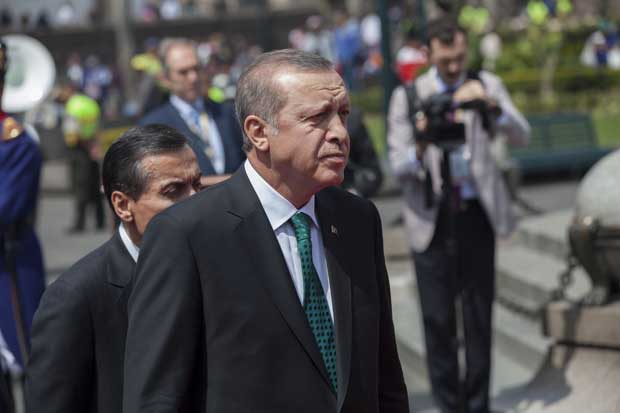30 May 2017 | Campaigns -- Featured, Digital Freedom, Digital Freedom Statements, Statements
[vc_row][vc_column][vc_column_text]
On 16 May the Venezuelan government issued Executive Order 2489 to extend the “state of emergency” in Venezuela, in place since May 2016. This new extension authorises internet policing and content filtering. This measure deepens the restrictions to the free flow of information online even more. They include the blocking of streaming news outlets, such as VivoPlay, VPITV, and CapitolioTV. Other serious practices that prevail in Venezuela are the aggressions of military and police personnel to journalists and civilian reporters, and the detention of citizens in the wake of content published on social networks.
This happens in a context of a general deterioration of telecommunications, as a consequence of the divestment in the sector in the last 10 years. This has turned Venezuela into the country with the worst internet connection quality in the Latin American region. Given the censorship practices applied to traditional media, the internet has become an essential tool for the freedom of expression and access to information of the Venezuelan people.
The measures taken by the Venezuelan Government to restrict online content constitute restrictions to the fundamental rights of Venezuelan citizens and, as such, do not comply with the minimum requirements of proportionality, legality, and suitability. The Venezuelan Government has systematically ignored civil society requests regarding the total number of blocked websites. To this date, there is evidence of the blocking of 41 websites, but it is suspected that many more websites are being blocked. The legal and technical processes applied by the government to determine and execute the blocking of websites remain unknown.
These kinds of practices affect the exercise of human rights. In a joint release, the rapporteurs for freedom of expression of the UN and the IACHR condemned the “censorship and blocking of information both in traditional media and on the internet”. During the last few months, three streaming tv providers have been blocked without a previous court order. Moreover, the Government has used unregulated surveillance technologies that affect the fundamental rights of citizens, such as surveillance drones to track and watch demonstrators, while at the same time expanding its internet surveillance prerogatives, through the creation of bodies such as CESPPA.
In addition to this, the government has implemented mechanisms for the collection of biometric data without citizens being able to determine their purpose nor who has access to such information. The official discourse towards the internet, and specifically to social networks, is disturbing: the director of the National Telecommunications Commission has recently declared that social networks are “dangerous” and a tool for “non-conventional war”.
The sum of this factors, aggravated by the passage of time and the deepening of the social and political crisis, outlines the creation of a state of censorship, control, and surveillance that gravely affects the exercise of human rights. Quality access to a free and neutral internet is recognised internationally as a necessary condition for the exercise of freedom expression, communication and the access to information, and as a precondition of the existence of a democratic society. In that regard, the undersigned civil society and academic organisations wish to set our position in the following terms:
We express our condemnation to the extension of the state of exception in Venezuela, as well as to the restrictions to the free flow of online content that derive from it.
We manifest our concern for the growing deterioration of internet access infrastructure and telecommunications in Venezuela. The maintenance of such systems is of vital importance for education, innovation, and the communication of Venezuelans.
We emphasise that the use and implementation of technological tools such as drones and biometric identification systems must fit human rights standards and not affect the fundamental freedoms of citizens, in particular their privacy and autonomy.
We insist that all measures that restrict the free exercise of fundamental rights, such as the blocking of web pages, must comply with the minimum requisites of proportionality, legality and suitability, and in consequence, must be only adopted by judicial authorities following a due process.
We request the ending of the harassing actions and insulting speech conducted by public servants online against NGOs and human rights activists that document and denounce acts through digital platforms.
We demand the cessation of military and police aggressions against journalists and citizen reporters.
We request transparency on the actions taken to restrict internet traffic and content and demand an answer to the requests for public information made by civil society regarding the practices of content blocking and filtering executed by the public administration.
Signed,
Derechos Digitales
Instituto Prensa y Sociedad de Venezuela
Acceso Libre (Venezuela)
(DTES-ULA) Dirección de Telecomunicaciones y Servicios de la Universidad de los Andes
Venezuela Inteligente
Public Knowledge
Access Now
Espacio Público (Venezuela)
Hiperderecho (Perú)
Son Tus Datos (México)
Alfa-Redi (Perú)
Centro de Derechos Humanos de la Universidad Católica Andrés Bello
EXCUBITUS Derechos Humanos en Educación
IPANDETEC (Panamá)
Sursiendo, comunicación y cultura digital
Red en defensa de los derechos digitales, R3D
Global Voices Advox
Asuntos del Sur
Internet Sans Frontières (Internet Without Borders)
Center for Media Research – Nepal
Index on Censorship[/vc_column_text][/vc_column][/vc_row][vc_row][vc_column][vc_basic_grid post_type=”post” max_items=”4″ element_width=”6″ grid_id=”vc_gid:1496155906014-ceb40fec-308b-10″ taxonomies=”13, 6914″][/vc_column][/vc_row]
31 Mar 2017 | Events
[vc_row][vc_column][vc_column_text]
Have journalists ever been under pressure from so many directions and how can they combat those pressures? This session looks at the power of propaganda machines to influence, or try to influence, the media, issues of personal security and image, and how journalists must cut through the cloud and examine sources and data.
Panelists:
Tamas Bodoky, founder and editor Atlatszo.hu
Dan Gillmor, School of Journalism Arizona State University
Rachael Jolley, editor Index on Censorship magazine
Maria Stepanova, founder and editor Colta.ru
This panel is part of the International Journalism Festival in Perugia, Italy[/vc_column_text][/vc_column][/vc_row][vc_row][vc_column][vc_column_text]
[/vc_column_text][/vc_column][/vc_row]
31 Mar 2017 | Events

New winds of censorship are blowing in not only from the Middle East and Africa, areas traditionally plagued by a troubled relationship between media and power, but also from the Americas and Europe. Index on Censorship, which monitors the state of censorship in the world, has recorded a worrying global upward trend, especially against artists, activists, intellectuals and journalists. In this session Index correspondents from Mexico, the Gulf, the Horn of Africa and Europe will provide an update on censorship worldwide and reaffirm the need for increased vigilance in the fight to maintain, or indeed reinstate, freedom of expression.
Panelists:
Laura Silvia Battaglia, freelance journalist
Ismail Einashe, freelance journalist
Rachael Jolley, editor Index on Censorship magazine
Marta Ottaviani, La Stampa
Duncan Tucker, freelance journalist
This event is part of the International Journalism Festival in Perugia, Italy.
21 Jul 2016 | Europe and Central Asia, Mapping Media Freedom, mobile, News, Turkey, Turkey Uncensored
The failed 15 July coup, bloody and despicable, delivered a lethal blow to the already crippled democratic order in Turkey. The cabal behind the putsch has become a midwife to Turkey’s “autogolpe” or self-coup. With every step, President Reccep Tayyip Erdogan and his Justice and Development Party (AKP) backers have introduced further restrictive sanctions.
This creeping self-coup is a prospect I raised in early 2014 with a long analysis for the German edition of Le Monde Diplomatique entitled Putsch im Zeitlupe. In that article I pointed out the parallels between the career of Alberto Fujimori, the former Peruvian president who is in prison for his corruption, and the increasingly autocratic methods employed by Erdogan.
The reaction to the totally unacceptable coup so far sadly has endorsed my theory. The reformatting of the Turkish state is now in fast-forward mode with a massive purge underway.
Tension has spilled over into academia. The head of the Supreme Board of High Education (YÖK), which itself is the product of the 1980 military coup d’état, called all the presidents of universities to an emergency meeting. It was followed by two drastic steps: YÖK issued a directive demanding the resignations of 1,577 deans across the country and, on Wednesday morning, blocked travel for all academics who were travelling abroad. YÖK also ordered all Turkish academics resident in universities in other countries to return home.
The media has been strangled even further. Within the past 48 hours, around 20 news sites were blocked by the Telecommunications Authority (TIB). On Tuesday night, the High Board of Radio and TV (RTUK) cancelled the licences of 24 TV and radio channels. The office of the press directorate announced that the press cards of 34 editors and reporters were cancelled. Officials cited “linkage with FETO structures” when explaining the bans. According to Turkish authorities, FETO is the terrorist organisation headed by the US-based cleric Fetullah Gulen, who has created a parallel state and is behind the failed coup.
The daily Özgür Düşünce, now accused of being an extension of “FETO terror organisation”, announced on Wednesday it was shutting down. The irony is that the daily that had assembled the finest core of liberal columnists who for many years struggled for a democratic order.
Also on Wednesday the editor of Meydan daily Levent Kenez and managing editor Gülizar Baki were arrested during a police raid without any explanation. Both are first class journalists.
Another drama has been developing around Wikileaks, which has published nearly 300,000 emails along with thousands of attached files from 762 mailboxes that allegedly belong to email domain of the AKP. The e-mails span between 2010 and June 2016.
Wikileaks was banned after some hours. “Turks will likely be censored to prevent them reading our pending release of 100k+ docs on politics leading up to the coup,” an earlier statement by Wikileaks read. It was later reported that ”WikiLeaks’ infrastrucutre was under sustained attack” following its announcement.
Concerns are at the alert level internationally. The International Federations of Journalists and the European Federations of Journalists contacted the Council of Europe about a series of new press freedom violations. Mapping Media Freedom has logged 18 violations of press freedom aimed at news outlets or professionals since the night of the coup attempt.
All journalists affiliated with the independent outlets know they have to work on the realistic presumption that conditions will worsen for them. If the Erdogan-led government has decided to deepen the path towards a self-coup and to utilise the extraordinary circumstances to ruthlessly settle scores with all dissent and opposition, the presumption is legitimate. All segments of civil society may soon be unable to avoid feeling they have been “taken hostage” as a result of the coup attempt that has pushed Turkey back decades.
A version of this article was originally posted to Suddeutsche Zeitung. It is published here with permission of the author.

Turkey Uncensored is an Index on Censorship project to publish a series of articles from censored Turkish writers, artists and translators.





